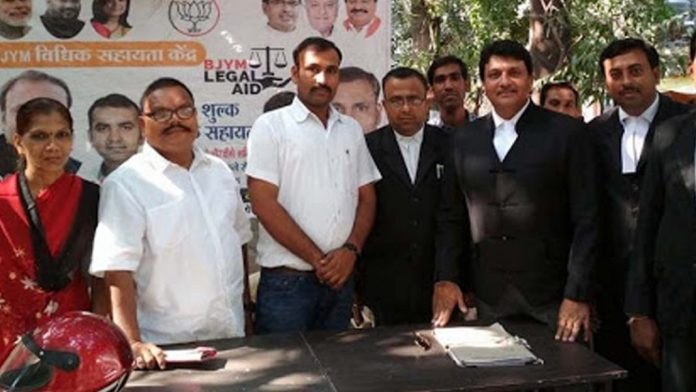In a first of its kind, the Madhya Pradesh High Court has made it mandatory for anyone filing a case to appoint a local lawyer. How would the future of the legal arena look if this spreads to all high courts?
By Sujit Bhar
Vocal for Local is what Prime Minister Narendra Modi has said, over and over again. It was about local manufacture and local consumption. This will apply to the service sector, in particular. This isn’t a new phenomenon, though. In a country as vast and as varied as India, the needs are different and the supplies for such needs have to be customised and localised. More importantly, when finances are in a crunch due to the Covid-19 pandemic and the severe economic downturn, there seems to be many more reasons to go local.
Recently, the Madhya Pradesh High Court has shown the way with an interesting order. In a first of its kind, the Court secured the interest of local lawyers by making it mandatory for anyone filing a case to appoint a local lawyer. Under this, it will not be possible to file a case without the appointment of a local lawyer. If any suit is filed without the appointment of a local lawyer, it will be dismissed as incomplete. To remove the imperfection, a local lawyer’s vakalatnama must be invoked.
Secretary and State Bar Member, High Court Bar Association, Jabalpur, Manish Tiwari, has said that on the instructions of Chief Justice (Acting) Sanjay Yadav, Registrar General Rajendra Kumar Wani duly issued the order. Earlier, the High Court Bar Association’s executive member Yash Soni had written a letter to the then chief justice as the bar representative with the request to appoint a local counsel in connection with the filing of cases in the High Court.
The letter states that Section 3 of the High Court rules, 2008, provides that if the parties appoint a lawyer from outside Jabalpur, Indore or Gwalior, they will also have to appoint a local counsel. In the coronavirus pandemic, advocates living outside the areas have been filing cases through e-filing and arguing through video conferencing. This is in violation of Section 3 of the High Court rules. It was made mandatory to follow this rule.
District Bar President Sudhir Nayak and Secretary Rajesh Tiwari have welcomed the decision of the High Court. It has also been emphasised to take similar steps in respect of district courts. The idea is to provide financial sustenance to local lawyers who are in dire straits because of stoppage of court work during the pandemic.
How will this affect the process of globalisation? As per international studies, globalisation seems to have taken a step back, allowing the consolidation of local markets and talents. Now that this process has entered the legal arena, how could the future look? Interestingly, this development has taken place within an ecosystem which allows dealing with cases remotely. The judges are at one place, different lawyers—even two lawyers for one plaintiff—are at different places and even the peshkar, or clerk, is not really present in the court. That was the process which was being developed, improving each day with the advent of better technology.
Not only was it making access to law easier, it was also convenient that the police could forgo the problem of lugging an accused all the way to court every time the case came up. Documents were being shared on the net, the very act of documentation and of producing the statutory “triplicate” copy harassment was becoming a thing of the past.
If we extend the local lawyer theory a bit, there will be several paralegal staff that were sourced locally before the pandemic who could be accessed remotely from any source. It helped in reducing the cost of the litigants. There are people associated with the standard documentation of legal papers, for research and the libraries. What happens when the situation becomes normal again? How many lawyers, who have become used to the comfort and ease of doing business from their own offices and homes, would be eager to attend court?
There is also the case of corporate lawyers’ panels. When the panel of lawyers are in a different city, will the corporate bodies also have to hire another local lawyer and increase cost? Senior Advocate Harish Salve now mostly lives in London. He argues cases from there, over video conference. How would such lawyers act? When the situation becomes normal again, these locally hired lawyers would remain attached to cases that had other lawyers. Firing them could lead to further litigation.
There are hurdles to be crossed and problems to be addressed, but a beginning has been made and adjustments will follow. If this trend permeates through to all High Courts and to all states, the change would be major.
Read Also: WhatsApp Pay: Game changer with new risks
It will lead to local talent getting involved in bigger numbers, it will also help them develop and jump to better courts, depending on their acumen.
A system of checks and balances will be the need of the hour, and also a system of assessing the abilities thus shown. Moreover, if junior and local lawyers get the opportunity of associating with seniors from across states, the general quality of arguments and backroom research will improve. Justice could be delivered faster and in a better manner.
Last, but not least, would be the local experience that will be available in tempering arguments. The credibility and status of an accused would be better known by local lawyers. This helps.



Comments are closed.